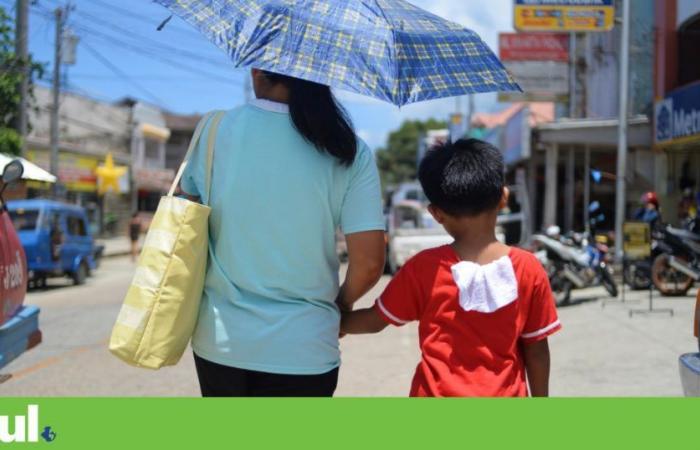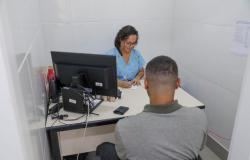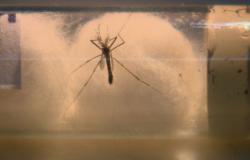The record heat in the Philippines this month forced schools to send children home for classes onlinereviving memories of the confinements caused by Covid-19 and increasing fears that a climate more extreme in the coming years could deepen educational inequalities. Students at 7,000 public schools in the Southeast Asian country were sent home last week due to unusually hot weather in many areas, which meteorologists linked to the effects of the weather phenomenon. El Niño.
Teacher Erlinda Alfonso, who works at a public elementary school in Quezon City, near the capital, said she didn’t know which was worse for her students – sweating in an overcrowded classroom or trying to study at home. “Some students told me that they prefer to go to school because the heat is worse at home,” she said, adding that many of her students live in nearby slums and do not have an internet connection to participate in classes. online.
Although teachers are providing assignments offline for students without internet access, Alfonso said the arrangement left children with no one to ask questions. “If there’s something they can’t understand, their parents or siblings are often not at home, because they need to earn a living,” says the 47-year-old teacher, who also heads the city’s public education teachers’ association.
The Philippines has had one of the longest school closures in the world during the COVID-19 pandemic, highlighting the education gap faced by children from low-income families without computers or sufficient internet access.
With most public schools in the country of 115 million people ill-equipped to deal with high temperatures and other extreme weather conditions, classes online have become the safest option during the current heat waves, teachers and unions say.
In public schools in Metro Manila, the capital, a survey of more than 8,000 teachers last month revealed that 87% of students had suffered from heat-related problems. More than three-quarters of teachers described the heat as “unbearable” in the survey carried out by Alliance of Concerned Teachers of the Philippines – National Capital Region (ACT-NCR), a teachers’ association.
Almost half, that is, 46% of teachers, stated that classrooms only have one or two electric fans, which reveals the insufficiency of ventilation measures to cope with rising temperatures.
“The heat had a tremendous impact on the children. Some students even fainted inside the classrooms. Teachers also suffered from the heat, but they often prioritized the health of students inside the classrooms,” said Ruby Bernardo, door -voice of ACT-NCR, at Thomson Reuters Foundation.
Ryan Eduard Benaid/SOPA Images/LightRocket/ Getty Images
More intense and longer heat waves
As the climate change As the frequency and severity of heat waves increase, the problems faced by teachers and students in the Philippines appear set to be replicated elsewhere.
Some 243 million children in Asia and the Pacific are expected to be exposed to hotter and longer heatwaves over the coming months, the United Nations children’s agency UNICEF said last week. Children are particularly susceptible to heat stroke, and UNICEF said prolonged exposure to intense heat also affects their ability to concentrate and learn.
Since the beginning of El Niñothe country’s meteorological agency predicted “danger category” temperatures of up to 44 degrees Celsius.
Filipino teachers say more measures are needed to deal with extreme heat in schools – from addressing the problem of a lack of classrooms and teachers, which leads to overcrowding, to providing clean water and the presence of a nurse or doctor on site. A Alliance of Concerned Teachers appealed to the Department of Education (DepEd) to resolve these issues.
He also proposed an immediate return to the school calendar prior to the pandemic, in which the hot months of April and May coincided with the long academic break.
Asked for comment, a DepEd spokesperson said its policy of allowing school principals to decide when to switch to classes online or offline at home “provides a more immediate and effective response to hot conditions, rather than thoughtless changes that would further compromise learning recovery.”
Some teachers say the current situation also highlights the need for more education about climate change. “Climate change has not been taught comprehensively in our classrooms. But it is a pressing issue linked to all the other challenges that our education system currently faces”, said Bernardo.
For many low-paid public sector teachers, working in schools with non-existent or inadequate cooling was the last straw. “The heat makes me want to resign or retire early”, admits Erlinda Afonso.
Tags: Covid19 heat online learning returns Philippines Climate change
--





